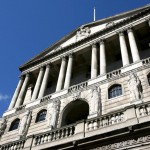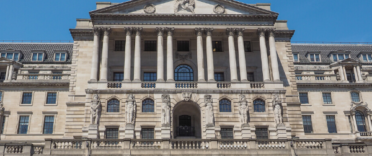Update 10/11/11 - the newest interest rate prediction (November) can be found here
Where next for interest rates?
What’s happened since last month’s interest rate prediction?
- Rates remained at 0.5% – last month the Bank of England’s Monetary Policy Committee (MPC), who are the guys who decide the UK base rate, once again voted to keep the base rate at 0.5%, for the 29th month in a row.
- NO support for a rate rise – last month the committee voted unanimously (9-0) to keep rates on hold. This represents a huge change in stance and means that an interest rate rise in the near future is less likely. (in July the MPC voted 7-2 to hold rates)
- Inflation remains high – July's inflation measure (called CPI) rose to 4.4% from 4.2% in June. Inflation remains stubbornly high and is expected to hit 5% soon. High inflation could derail an economic recovery. To combat inflation interest rates are usually increased.
- The economy has stagnated – economic growth as measured by Gross Domestic Product (GDP) was negative (-0.5%) in the last quarter of 2010. This trend was reversed in the first 3 months of 2011, when GDP grew by 0.5%. Then during the second quarter of 2011 GDP grew by just 0.2%. While at least we technically have avoided another recession the economic recovery is still very fragile. The upshot is that if the economy is in a bad way (high unemployment etc) increasing rates could tip personal finances over the edge and spell disaster. Especially as nearly half of home owners are living in fear of a rate rise. So this could put off the MPC from raising rates.
- Unemployment rose – UK unemployment rose by 38,000, in the three months to June, to 2.49 million. And this is before the government's austerity measures kick in. Such a huge unemployment figure is never a good thing.
- Any signs of green shoots? – Unfortunately GDP figures were disappointing. Consumer spending figures still disappoint and confidence among retailers on the high street is at an 18 month low. Also, the UK services sector (a key driver of the UK economy) saw a sharp slowdown in growth. Or to sum it all up, the UK economy is in serious trouble. Raising rates would hammer consumers further and could derail any sniff of an economic recovery which would be bad news.
- Mervyn King is still not panicking and doesn't want to raise rates – Mervyn King is the guy who heads up the group of people who sets the bank base rate. During the recent Quarterly Inflation Report he emphasised that the economy had continued to weaken. Mervyn has previously said that there would be no rise in interest rates until there was clearer evidence that the economy was growing and that unemployment and the interest rates actually paid by consumers were falling. None of these will be happening any time soon.
- UK Economic growth forecasts continue to be cut –whether it is George Osborne himself, Mervyn King or organisations such as the British Chambers of Commerce growth forecasts for the UK are being cut, suggesting that the recovery is more fragile than first thought.
- The stock markets have crashed - amid concerns of an impending banking crisis. It would be a brave person who voted for an interest rate rise in conditions when markets are wanting more monetary stimulus rather than less.
So when will interest rates rise?
The market’s views on when the first rate rise has continued to be pushed back. Last month it centred around mid 2012. But the unanimous voting at last month's meeting as well as the stock market crash has seen markets price in the first rate rise to be in 2013 at the earliest and possibly late 2014.
The Money to the Masses Interest Rate Clock is being wound back
As regular readers will know my interest rate clock sums up a lot of economic data, analysis and opinion, such as the above, and if a jump in interest rates is looking increasingly likely then the clock time will be moved closer to midnight. If it looks less likely then it will move away from midnight (with 23.45 being an expectation of an interest rate drop). So you can ignore all the waffle and just concentrate on the clock time.
What more needs to be said? We are almost certainly heading into a recession in the near future. The euro crisis won't go away (the possibility of a full scale banking crisis is very real) and the UK economy is slowing down along with the rest of the world. Some analysts are pricing in a 40% chance of a global recession. An interest rate rise has never looked less likely since I've been making these predictions.
So to sum up the clock time is being wound back to 23:50 (the biggest ever single movement). As stated earlier the original idea was that 23:45 would represent a rate cut. But while that isn't likely I think the new time emphasises how unlikely a rate rise looks at the moment.
The historic clock time adjustments are listed below to give you an idea of how my expectation of an interest rate rise has changed over time:
- May 2010 – 23:55
- July 2010 – 23.54
- September 2010 – 23.53
- January 2011 – 23.54
- Feb 2011 – 23.56
- May 2011 – 23.55
- July 2011 - 23:53
- September- 23:50
So should you rush to fix your mortgage now why rates are low?
Luckily I’ve answered this question in my article Should you fix your mortgage now?






